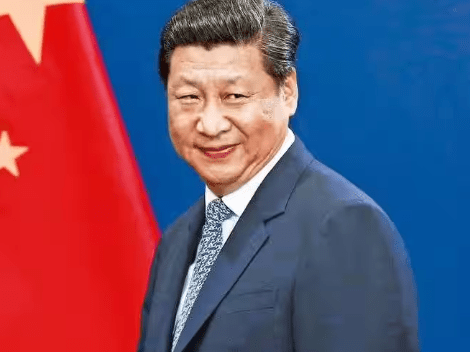How China supports Pakistan’s terrorist network as the world honors the dead of September 11, 2001

“Terrorism should not be politicised,” this is what India’s External Affairs Minister Dr S Jaishankar said in March this year, while speaking alongside foreign ministers of Australia, Japan and the US during a Quadrilateral Security Dialogue (Quad) meeting.
It was a direct and strong message to China.
The communist nation has blocked numerous moves by India and its partners to designate Pakistan-based terrorists under the 1267 Al-Qaeda sanctions committee at the United Nations Security Council.
Through this, China has knowingly bolstered terror infrastructure in Pakistan. And as the world remembers the victims of the 26/11 terror attacks on the 15th anniversary on Sunday (Nov 26), it becomes imperative to know how Beijing has contributed to making this world less safe by repeatedly shielding Islamabad from UN action.
Lashkar-e-Taiba: The architect of 26/11
On Nov 26, 2008, 10 members of Pakistan-backed terror outfit Lashkar-e-Taiba (LeT) carried out 12 coordinated shooting and bombing attacks lasting four days across Mumbai.
The attacks, which drew widespread global condemnation, began on Wednesday (Nov 26, 2023) and lasted until Saturday (Nov 26, 2008). A total of 175 people died, including nine of the attackers, with more than 300 injured.
Beijing’s denial
At India’s request, New Delhi’s close partners in the UN Security Council, including the US, UK, and France, brought several proposals over the years to designate Pakistan-based terrorists belonging to LeT and Bahawalpur-based Jaish-e-Mohammed (JeM) and sanction them by listing them under the ISIL (Da’esh) and Al-Qaida Sanctions Committee at the UN that was set up in 1999 under resolution 1267.
Beijing blocked many of them, indicating that Beijing would factor geopolitics in while making its moves at the UNSC.
Due to the hurdles created by China, the principal handler of all 10 terrorists who unleashed havoc on Mumbai in 2008, Sajid Mir, has still not been designated a global terrorist.
How China shielded Pakistani terrorists at the UN?
On September 6, 2022, the US, along with India, submitted a proposal to include Sajid Mir, aka Wasi bhai, on the 1267 list before the Sanctions Committee.
Beijing initially blocked the proposal on September 15, 2022, and extended the hold until June 20, 2023, when the Xi Jinping regime, breaking consensus requirements, objected to it.
This pattern was consistent in other cases.
Another proposal, submitted by India with US co-designation on June 1, 2022, aimed to designate Abdul Rehman Makki, the financier and ideologue of the 26/11 attack.
China placed the proposal on hold on June 16, 2022. Threatened with escalation to the UN Security Council by the US, China reluctantly lifted the hold on January 16, 2023, resulting in Makki, with a $2 million bounty on his head, being added to the list.
Similarly, China blocked efforts by the US and India to designate LeT’s propaganda wing member Shahid Mehmood as a global terrorist.
China also objected to the efforts by the US and India to get Talha Saeed, son of Hafiz Saeed, enlisted on the Sanctions Committee list in October and November of last year.
China’s open support to Masood Azhar
How can we forget China’s relentless support to Masood Azhar, the founder and leader of the Pakistan-based terrorist organisation Jaish-e-Mohammed (JeM).
Thanks to China’s objections, the US, UK, France and India had to toil away for more than three years to get Azhar designated as an international terrorist.
The first proposal was moved in February 2016. China repeatedly shielded the radical Islamist until finally giving up in May of 2019, when Masood Azhar Alvi was finally listed in the 1267 committee.
Notably, the proposal to designate his brother Abdul Rauf Asghar Alvi, the chief operational commander of JeM, that was submitted by the US and India, as global terrorist is still facing Chinese hurdles at the UN.
Not just India’s problem
It must be noted that China’s shielding of terrorism in South Asia doesn’t jeopardise India’s national security alone but contributes to the menace of terrorism globally.
For instance, Masood Azhar’s actions were not limited to the South Asian region; BBC News described him as “the man who brought jihad to Britain.”
In August 1993 Azhar entered the United Kingdom for a speaking, fundraising, and recruitment tour. His message of jihad was given at some of Britain’s most prestigious Islamic institutions, including the Darul Uloom Bury seminary, Zakariya Mosque, Madina Masjid in Blackburn and Burnley, and Jamia Masjid.
His message was that “substantial proportion of the Koran had been devoted to ‘killing for the sake of Allah’ and that a substantial volume of sayings of the Islamic prophet Muhammad were on the issue of jihad.”
China’s double standards
On terrorism, China has taken two, totally opposite paths domestically and internationally.
While it has launched an unprecedented crackdown on religious freedom in its Muslim-dominated Xinjiang region and restricted human rights in the name of ‘tackling terrorism,’ it has failed to even acknowledge the threats posed by terrorism in South Asia, apparently because it shares deep ties with a nation generally hailed as the epicentre of terrorism: Pakistan.






